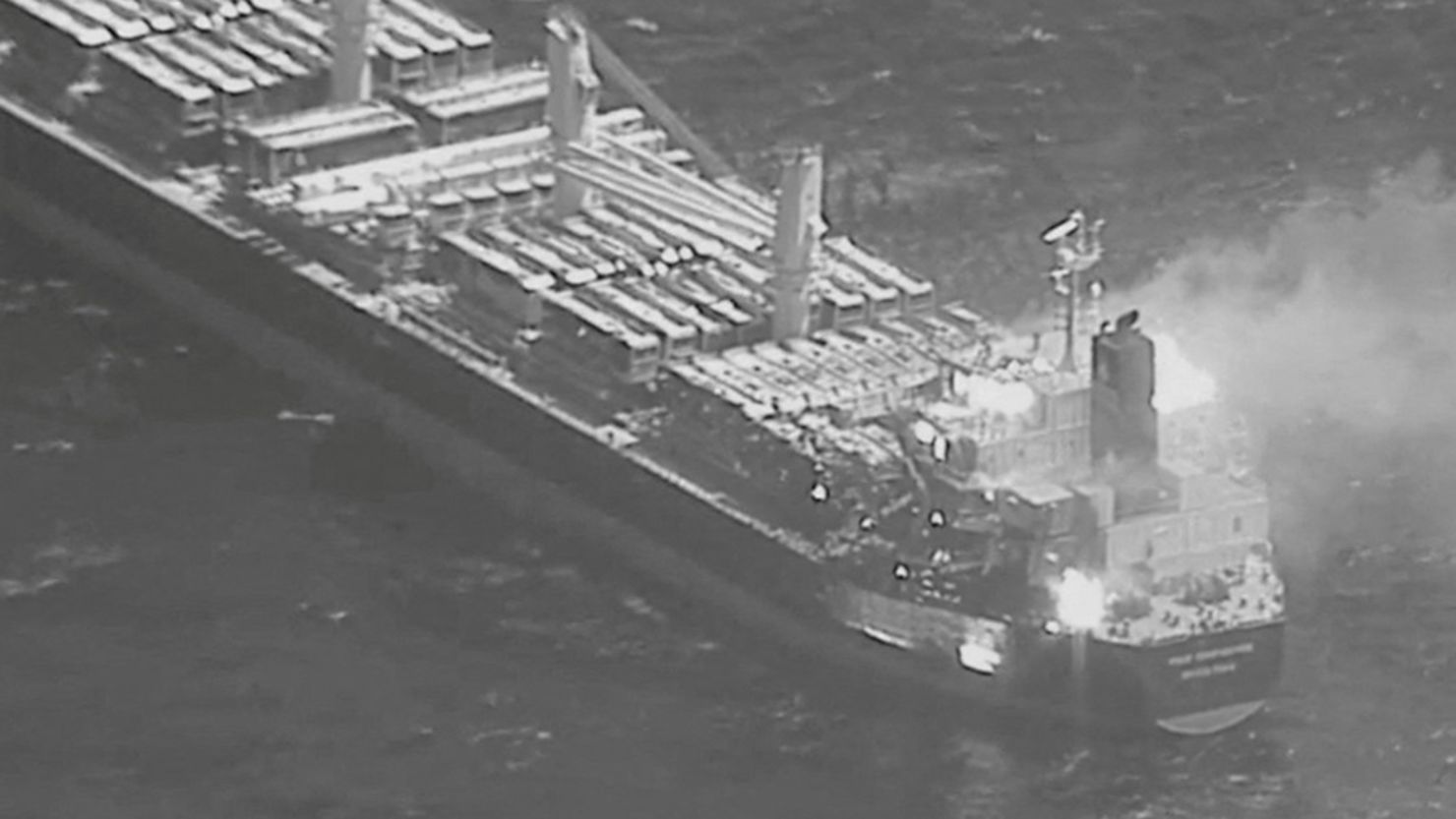Has the “Red Line” in the Red Sea been Crossed?
At least three crew members, including one Vietnamese, were killed and four others injured in an attack by the Houthi rebels on the True Confidence ship on March 6. The Liberian-owned vessel was carrying dry cargo such as grains and iron ore through the Red Sea.
This attack marks a significant escalation by the Houthi rebels targeting ships in the Red Sea, disregarding the presence of the US-led naval coalition. According to data from maritime risk analysis company Windward, the number of ships passing through the Red Sea and the Suez Canal has decreased since the Houthi attack on March 6. The volume of traffic in the area has also significantly reduced since December last year as ships reroute, going around the southern tip of Africa.

The US and Western officials have stated that the Houthi rebels have carried out over 45 missile and unmanned aerial vehicle (UAV) attacks against commercial and US naval ships operating in the Red Sea. However, most of these missiles and UAVs have been intercepted or have fallen into the water. Therefore, the deadly attack by the Houthi rebels on the cargo ship on March 6 is seen as a significant shock that could force maritime transportation companies to reconsider their routes.
Peter Sand, Chief Analyst at Norwegian-based maritime analysis firm Xeneta, believes that the “red line has been crossed” due to the Houthi’s casualties-causing attack. This also indicates that the shipping crisis in the Red Sea will take several months, if not longer, to resolve. During this time, major container shipping companies such as Maersk, MSC, and Hapag Lloyd will have to operate their vessels on longer and more costly routes across Africa.
The cost of shipping containers along some of the world’s busiest trade routes remains twice as high as in December last year, according to data from London-based shipping consultancy firm Drewry.
Furthermore, General Secretary of the International Transport Workers’ Federation (ITWF), Stephen Cotton, stated that crew recruitment has become more challenging following the recent Houthi attack, despite doubling the basic salary.
The escalating attacks by the Houthi rebels in the Red Sea region have disrupted maritime trade and raised concerns for the safety of ships and crew. The impact on shipping routes and costs will have far-reaching consequences for the global economy. The situation calls for increased security measures and international cooperation to ensure the safe passage of vessels through this strategic waterway.
For more financial news and updates, visit Business Today.
